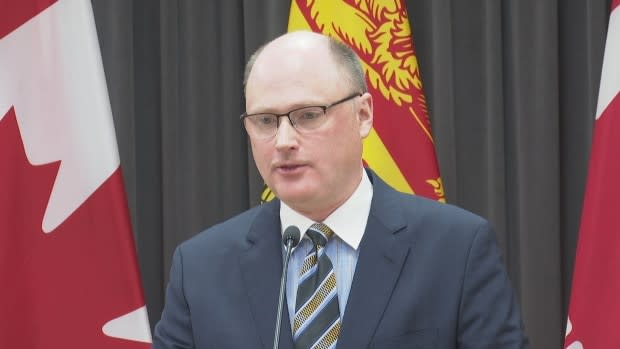Province overhauls SEED program again, announces fewer placements
The New Brunswick government is making another round of sweeping changes to its provincial student employment program in hopes of making the process more equitable for employers and employees.
The Student Employment Experience Development (SEED) program will provide fewer job placements and limit employers to non-profit groups, First Nations and municipalities, the province announced Tuesday.
The Progressive Conservative government is also scrapping the lottery system used to select students and allowing MLAs to recommend employers.
Trevor Holder, the minister of post-secondary education, training and labour, told reporters the program overhaul brings a greater level of fairness to the process while taking politics out of it.
Under the previous model, high school and post-secondary students entered a draw for placement vouchers and employers would then have to find a student with a voucher.

Holder said that system meant some unlucky students never received a placement and it also created a disadvantage for rural employers and some non-profits that relied on students to run summer programs because there weren't enough nearby students with vouchers.
"We have heard consistently from communities, from MLAs, from stakeholders in the community that the non-profit sector was not necessarily given the attention that it had previous when, in the past, this had been strictly a non-profit, municipality program," Holder said.
The new system, which is already in place, has employers applying to his department for SEED funding. Each MLA will be allowed to recommend 22 placements in their riding. The applications are reviewed, approved employers will be notified in March and the jobs will be posted online.
Students can then apply directly to the employers.
De-politicizing the process
Holder said he trusts MLAs to be engaged in their districts and to understand the local needs, noting it's part of the government's "strategy to empower MLAs."
He said each employer will be vetted and the department has the final say.
"In my view we have finally taken the politics out of it and treated every region around the province equal regardless of how the people in that area voted," Holder said. "And I think this will go a long way to de-politicizing this process."
But the executive director of the New Brunswick Student Alliance said the changes are doing the exact opposite.
"I think it politicized the process," said KJ Conyers-Steede, adding the alliance pushed to remove MLAs from the process a few years ago.

"We have wonderful civil servants who work within [the department] who are capable of providing insight of the services and the jobs placements."
Conyers-Steede, who said the alliance was not consulted about the changes, said provincial governments continue to tinker with programs like SEED and student financial aid, using them as a "political football."
He said post-secondary students who are investing in the New Brunswick system "want some predictability."
The SEED program alone has been changed three times in the last five years.
Fewer placements
Holder said the budget won't be changed, but there will be about 200 fewer placements available than the 1,400 last year.
He said non-profit groups often require more than a 50 per cent subsidy — in some cases 100 per cent — meaning fewer dollars to go around with the new emphasis on non-profit employers.
The minister said the subsidies aren't needed in the private sector.
"This gives us a lot more flexibility," Holder said. "It allows us to focus squarely on on the priority of making sure our non-profit sector was supported here."


